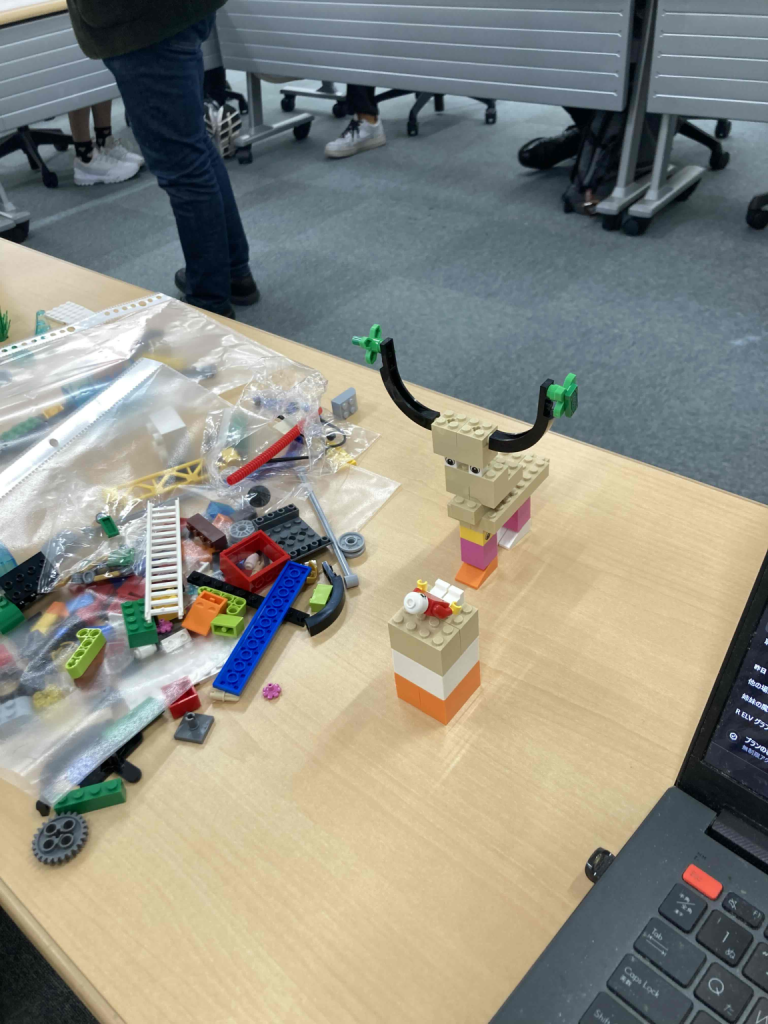Green Entrepreneurship Studies
News
On Friday, January 10, 2025, the 7th session of Kyoto University’s “Green Entrepreneurship” lecture was held.
Summary
On Friday, January 10, 2025, the 7th session of Kyoto University’s “Green Entrepreneurship” lecture was held. As the final session, it served as a comprehensive summary of the previous lectures, using LEGO Serious Play (LSP) to reflect on the course. The facilitation was led by Professor Yamada, with guest professors Karube, Sawabe, and Kimura participating in the discussions. Under Professor Yamada’s guidance, lively discussions were held using LSP on “Deepening the Cases and Exploring Green Entrepreneurship Collaboration Models” and “Constructing the Self-Identity and Action Plans of Students.”
Morning Session
Using LSP, students explored “Deepening the Cases and Exploring Green Entrepreneurship Collaboration Models.” Each student selected a case they had studied and expressed it using LEGO. Various cases such as Daicel, CDP, Renova, IHI, NEC, and Machiokoshi Energy were chosen and represented creatively through LEGO models. During the sharing session, students noted the different perspectives each model presented. Guest Professor Karube concluded the session with insightful comments on the importance of collaboration timing and creating common platforms among individuals with different perspectives.
Afternoon Session
The latter half of the lecture used LSP to “Construct the Self-Identity and Action Plans of Students.” Students first expressed their identity with LEGO, followed by exploring opportunities and challenges in green entrepreneurship. They then discussed action plans, considering both macro perspectives like institutional theories and micro perspectives from practitioners such as SMEs and management consultants. Comments highlighted the importance of both perspectives and the potential for cross-industry collaboration.
Conclusion
Guest Professor Karube provided closing remarks from three perspectives: Authenticity, Concept, and Patience. He emphasized the importance of being genuine and straightforward in turning green into business, supported by education and scientific backing. The second perspective focused on how to communicate this authenticity, and the third on long-term views and passing on to the next generation. These insights suggested that further development in green business could emerge from those who studied green entrepreneurship.
Professor Yamada concluded the lecture by encouraging students to crystallize their learning from the practical examples and insights into actionable plans, thereby bridging learning and practice.




